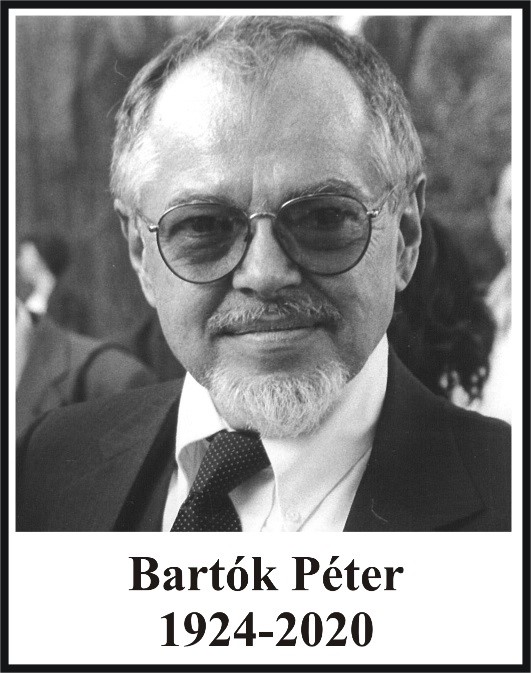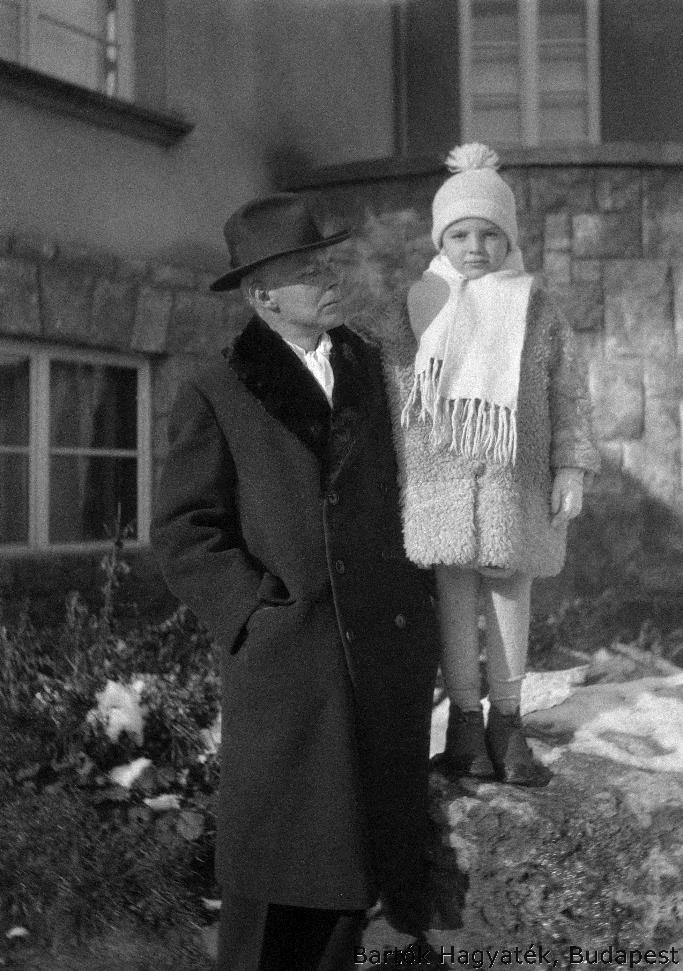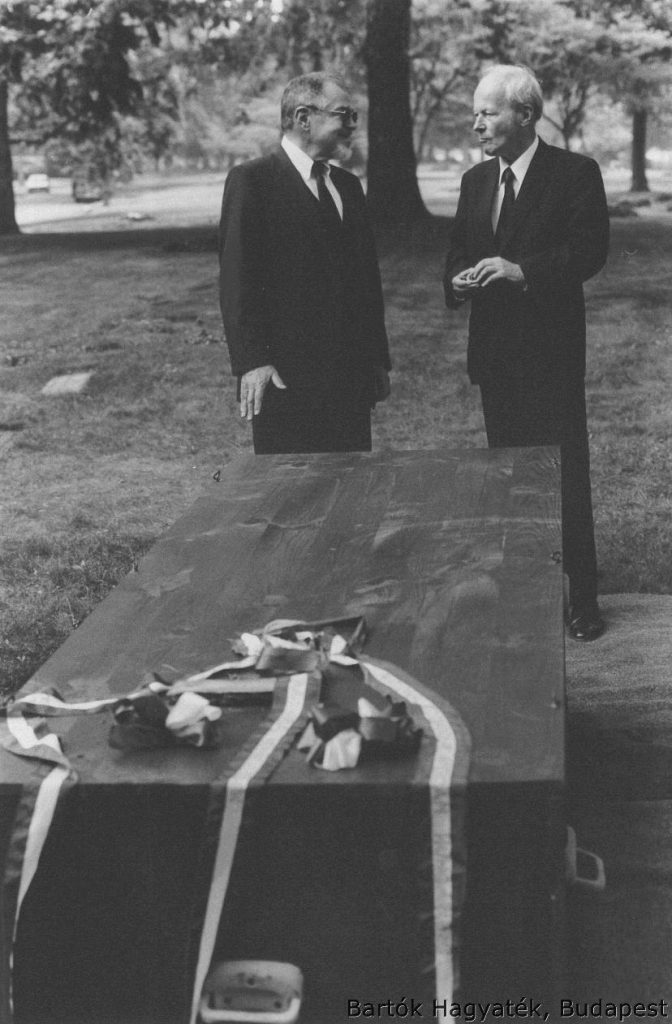
Péter Bartók fell asleep for good in silence, in the 97th year of his life, in the United States of America on December 7, 2020, at 3 p.m. local time. Béla Bartók’s younger son was born on July 31, 1924, and his mother was Béla Bartók’s second wife, Edith Pásztory.

Péter Bartók devoted his whole life to carefully processing his father’s oeuvre and preserving the authorial intent above all else. He had to recover the manuscripts and inheritance due to him from lawyers who were usurping his father’s American estate through a lengthy lawsuit. From then on, he devoted all his energies to correcting the errors and omissions in the printed editions of his father’s works and to making correct and flawless editions of Béla Bartók’s works. In order to publish perfect sound recordings and records, he established a private publisher called Bartók Records, and the publisher, which still operates today, later also published the corrected sheet music and books. In 1988, after long consultations, together with his brother, Béla Bartók Jr., they brought home Béla Bartók’s remains from the United States and buried them in Farkasrét Cemetery, where he still rests.

Peter did his best to make his father’s authorial intent as widely known as possible about his works. In the late 1990s, his idea was to deposit the part of his father’s manuscripts in his possession with the Hungarian Academy of Sciences, but the Academy was unable to provide a legal background for it. Nevertheless, Péter had copies of the manuscripts made and had them delivered to Budapest at his own expense, at a price of about USD 55,000 at that time, and deposited them with the Hungarian Academy of Sciences in order to make the manuscripts available also in Hungary. Thus, with Béla Jr. and Péter’s help, Bartók researchers in Hungary could always have access to all important sources related to Béla Bartók’s works and oeuvre.
He had been living in the house on Csalán Street (District 2, Budapest) which functions today as Béla Bartók Memorial House, with his parents between 1932 and 1940 and with his brother Béla until 1935. Having been the last eyewitness still alive at that time, Peter contributed invaluably in moral and informational support in 2005-2006 when my wife and I worked from our own sources on reconstructing the building and expanding the exhibition.
The two brothers, Béla Jr. and Péter, had a loving, good relationship until the end of their lives. I will never forget when in 1994, 2 days before Béla Bartók Jr.’s death, Péter and I stood by my godfather’s, Béla, bed. He took both of our hands and with slightly damp eyes, but with a smile he said: “Love each other!”. It was the last conversation of the three of us together. Even after that, we met Péter many times also in person and exchanged countless letters about Béla Bartók’s works. He himself was an important and credible source, for he knew his father not only personally, but was one of those who were closest to him. He was a Hungarian gentleman who, although spent most of his life in the United States, spoke perfect and unaccented Hungarian even before his death, and also spoke words in Hungarian for which we would have used foreign words for a long time. With this, he also remained faithful to his father’s patriotism. Péter, may you rest in peace with the Lord! I believe that you three, you and your father and brother, have already met your up there.
Gábor Vásárhelyi
Béla Bartók’s legal successor